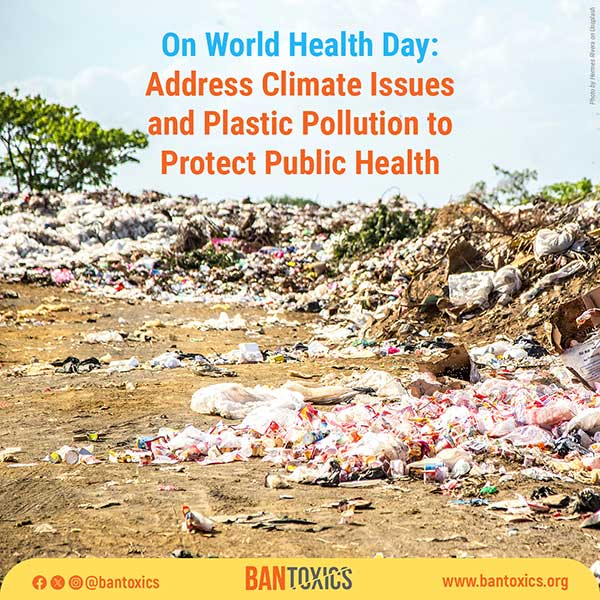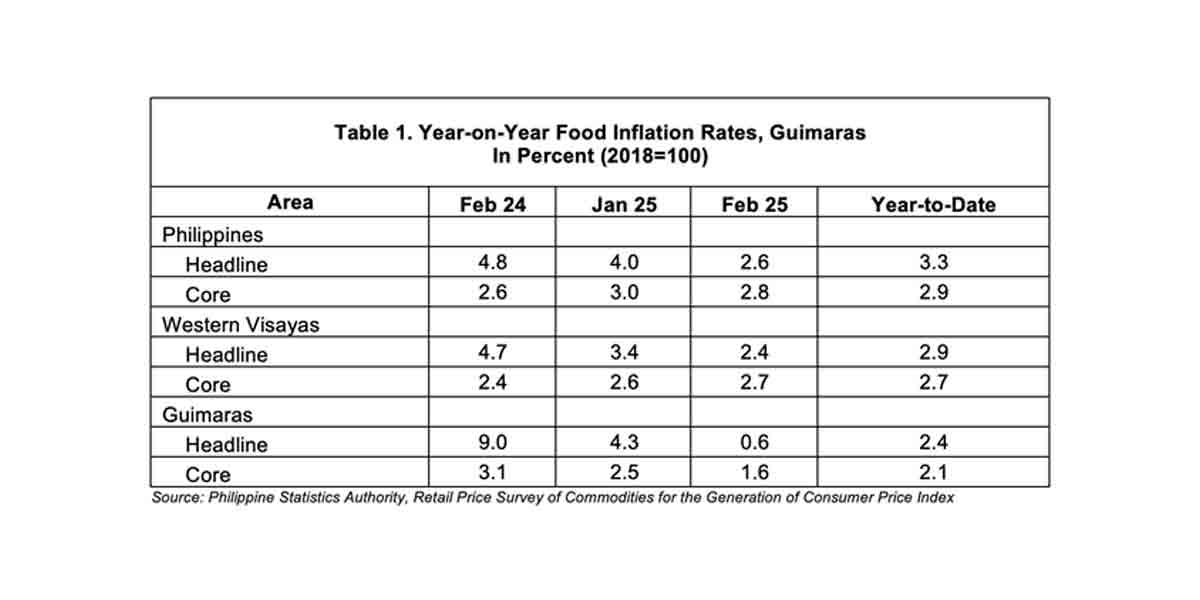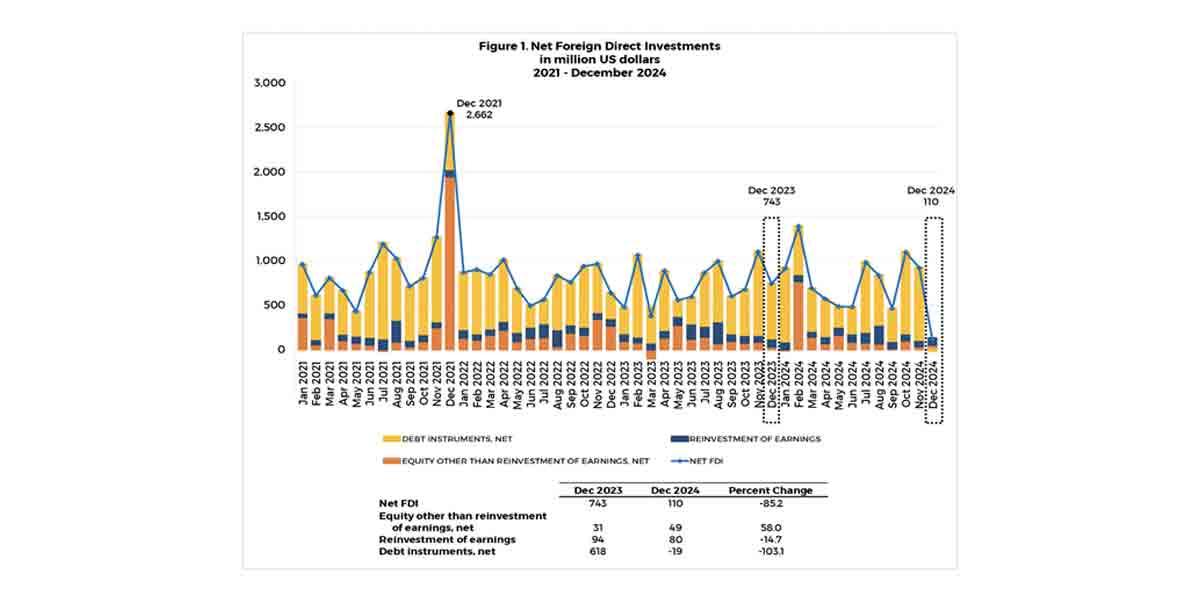
In time for the celebration of World Health Day, environmental NGO BAN Toxics highlights the urgent need to address pressing climate issues of plastic pollution and global warming and how they impact public health.
“As the country contends with dangerous heat index levels resulting from human-induced climate change compounded by the warming influence of the naturally occurring El Niño phenomenon, we also face intensified health risks posed by plastic pollution. A warming climate diminishes the properties of plastics, accelerates their aging, heightens the risk of microplastics, and the release of hazardous substances,” Jam Lorenzo, BAN Toxics Policy Development and Research Officer said.
“In addition to health risks associated with El Niño, such as heatstroke and vector-borne diseases like malaria, dengue fever, and Lyme disease, as well as respiratory and cardiovascular illnesses due to air quality, we must also address serious health risks posed by plastics. These include cancer, endocrine disruption leading to reproductive, growth, and cognitive impairments. Toxic chemical additives in plastics are known to have persistent and bioaccumulative health impacts. Experiments on microplastics indicate exposure can result in toxic effects such as oxidative stress, metabolic disorders, immune responses, neurotoxicity, as well as reproductive and developmental toxicity,” Lorenzo elaborated.
“Research indicates that rising temperatures and heat alter the characteristics of plastics, thus, driving the demand for more plastics and waste. Conversely, the overproduction of the plastic industry has been acknowledged as a significant emitter of greenhouse gasses, which then exacerbates climate change. This self-reinforcing cycle, as highlighted by scientists, constitutes a vicious cycle that warrants utmost attention and decisive measures to disrupt the cycle,” Lorenzo added.
The environmental group urges policymakers to prioritize implementing a comprehensive national ban on single-use plastics and other non-essential and problematic plastic products. They also call for establishing targets to cap and phase down virgin plastic production to address the reduction of plastic waste. “Given the current limitations of our waste management capacity, which cannot handle the plastic waste crisis effectively, there is an urgent need to address this issue to prevent further profound harms to human health and the environment.”
The Philippines is estimated to have produced nearly 5 billion kilograms of mismanaged plastic waste, a quantity expected to double to 9 billion kilograms by 2040 without additional interventions. Despite the enactment of the Extended Producer Responsibility law in 2023, which serves as the primary legal framework addressing plastic pollution, BAN Toxics advocates for regulatory strengthening. The organization believes a framework to combat plastic pollution must encompass the entire lifecycle of plastics, starting from the extraction of raw materials, rather than solely focusing on the end-of-life phase.
“As global warming and plastic production, use, and waste intensify hand-in-hand, the country remains at a critical juncture, disproportionately vulnerable to the impact of these global challenges. On this World Health Day, we advocate for a holistic and systemic change approach to protect the health, welfare, livelihoods, and the environment.”
BAN Toxics has been participating in international negotiations for a legally binding international law aimed at reducing plastic pollution worldwide, and covering the full life-cycle of plastic. “To reverse the tide of plastic pollution, we advocate for a global plastics treaty that stipulates ambitious and binding reduction in plastic production of countries. We want to push forward the point that plastic is pollution from the moment of fossil fuel extraction,” Lorenzo said in a final statement.
References:
https://bnrc.springeropen.com/articles/10.1186/s42269-023-01160-4#ref-CR18






















